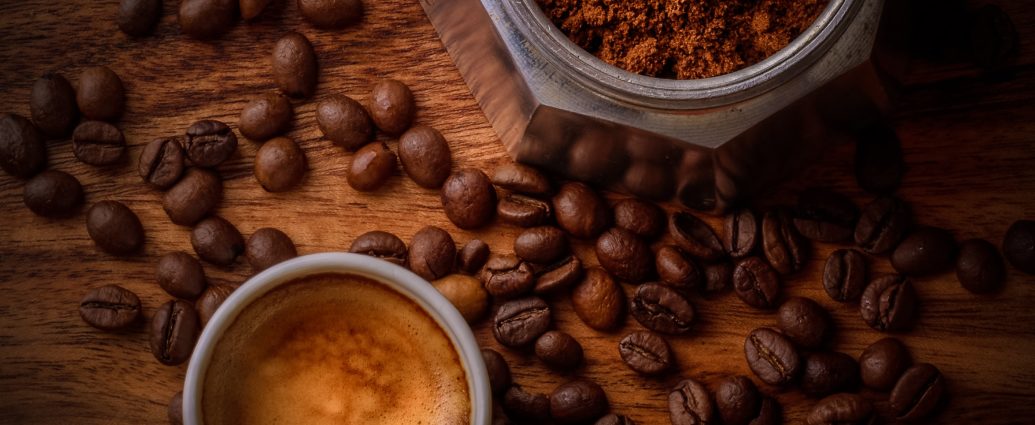Coffee is the most popular drink in the world (after water) with over 400 billion cups consumed on average every year. In the UK alone, 2,800kg of coffee per person is monopolized, with 64% of Americans consuming the caffeinated drink every day. Whilst utterly delicious and addictive, its environmental impact is quite distressing. That then bears the question: can coffee be environmentally friendly?
What exactly is the environmental impact?
Traditionally, coffee beans are cultivated under the shade of tree canopies, providing a habitat for animals and preventing land erosion. These shaded areas attract wildlife who feed off pests, acting as a natural pesticide. Due to an increase in market demands and consumption however, shade-grown coffee beans have been replaced with sun-grown beans and thus an environmental tragedy.
Originating in the 1970s, sun-grown coffee beans are cultivated on open-plan plantations with no tree canopy. As you can expect, without the natural biodiversity of quite literally ‘the birds and the bees’, artificial fertilisers have become a necessity. Not only does this steer pests away but also natural wildlife. Since the 1970s, 2.5 million acres of land in Central America have been cleared for coffee farming – now that is a lot.
The World Wide Fund for Nature (WWF) claims that out of the 50 global countries with the highest deforestation rates, 37 produce coffee – surely that cannot be a coincidence.
But there are ways in which we can tackle this…
Know your certifications
Knowing your certifications is crucial if you want to be sipping away at your coffee knowing the forests are still standing – for now.
The Rainforest Alliance logo is a prime example. This logo indicates that these coffee beans have been grown and cultivated in a way that does not contribute to global deforestation or damage to natural habitats.
Kenco’s beans are sourced 100% from Rainforest Alliance certified farms and is a company that is setting high standards in the industry for others to follow suit.
Fairtrade is another logo to look out for. It is one of the most widely used systems of sustainability, representing around 27% of the overall coffee market share.
Products boasting the Fairtrade mark meet internationally agreed standards in social, environmental, and economic terms. Socially, Fairtrade products respect farmers and indigenous workers, creating a communal space for people and produce to grow in harmony.
Business Development Manager at the Fairtrade Foundation, Kate Lewis, said: “[The Fairtrade] Foundation’s mission is to reduce poverty through trade and is it unique in offering a structured minimum price and premium guarantee for producers.
“This guarantee acts as a security blanket for the farmers of a crop that is otherwise prone to price volatility.”
Whilst these certifications can perpetuate product prices, in the long run, it is definitely worth it.
Buy local
Buying local is the way forward – no question about it. Local and independent roasters usually have a deeper knowledge and understanding of the environmental and ethical impact of coffee production, choosing to pursue their passion through such awareness.
Coffee beans in these coffee houses and companies are generally roasted on a smaller, and therefore more sustainable, scale, with minimal waste. Shopping local also contributes to the preservation of our own patch and encourages profits amongst smaller companies who do not belong to large chains of unethical practices. It’s a win win.
Be inquisitive
According to Paul Rooke, executive director of the British Coffee Association, questioning companies on their production ethics can encourage them to proceed with caution and greater respect for the planet.
“Lots of companies want to do the right thing, but the more they are asked about these issues, the more they will feel they have a mandate from their customers to actually do something about it.”
At the end of the day, if we don’t ask, we don’t get, and nothing will change. Humanity has been manufactured to continually progress and this is just the start.
What about the birds?
Deforestation is no mystery, yet many of us appear oblivious to its environmental impact – but why?
Bird and Wild is an ethically-sourced coffee company who launched in 2018 and whose aim is to alert coffee-drinkers to the plight of birds migrating from their habitats amidst the destruction of deforestation.
Founder, Wilmot, claims it is the “best possible certification for coffee because it’s not just Fairtrade and organic but shade-grown, which is better for birds.”
It’s all in the packaging
99% of coffee packaging is made from plastic – but not just any plastic. The majority of global companies use flexible plastic which is currently not recycled in the UK. On top of that, only one in 400 disposable coffee cups are actually recycled; most end up in the landfill.
“It’s a big challenge,” said Rooke from the British Coffee Association, “because you have a product that is predominantly cardboard, which is easily recyclable, but in there is also a plastic liner for the liquid.
“The issue is, how do you recycle them when they need to be separated out?”
The lesson here is simple – bring your reusable coffee cup. And if you don’t have one, buy one!
Final thoughts
It isn’t easy living completely sustainably; one thing or another always emerges and before you know it you’re knee deep in forest debt and wildlife charges. But change does not need to happen immediately because every little does help, and the more we become aware of the environmental impact that the cultivation of coffee has on our planet, the closer we will become to uniting as one to produce ethically-sourced and environmentally-friendly coffee beans.
Madeleine Raine
Featured image courtesy of Si Janko Ferlic on Unsplash. This image has in no way been altered. Image license is available here.

